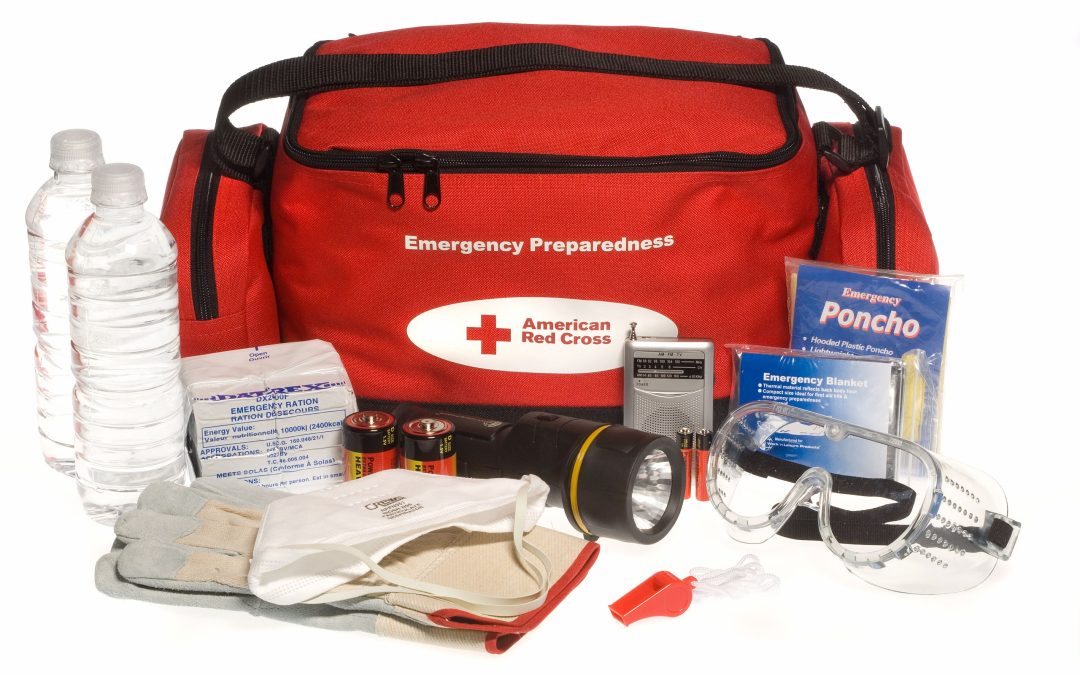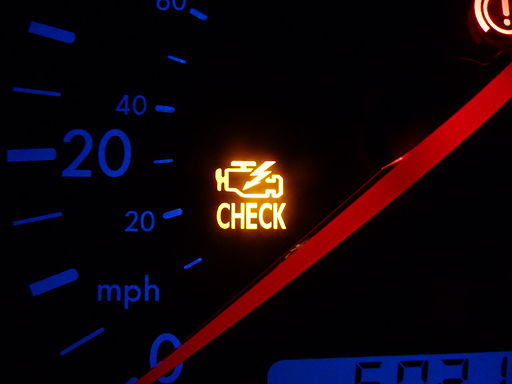RV trips are a great way to explore the outdoors and make memories with loved ones. However, emergencies can happen anytime, and being prepared is crucial to staying safe on the road. In this guide, we will provide tips on how to handle various RV emergencies, including medical, mechanical, electrical, environmental, and personal safety issues. Our aim is to provide practical advice that will help you stay safe and secure during your RV trips.
Medical Emergencies
Medical emergencies can happen unexpectedly on an RV trip, and it is essential to be prepared. Heart attacks, allergic reactions, and injuries from falls are some common medical emergencies that can occur. To prepare for such emergencies, we recommend having a first-aid kit that includes bandages, antiseptic, and medication for pain relief. It is also essential to keep a list of emergency contact numbers, including your doctor’s number, and the location of nearby medical facilities.
In case of a medical emergency, it is crucial to stay calm and assess the situation. If the situation is severe, call 911 or the emergency services in the area immediately. If it is not life-threatening, administer first aid and seek medical attention as soon as possible.
FAQ
Q1. What are some common items that should be included in an RV first-aid kit?
A1. An RV first-aid kit should contain basic medical supplies such as adhesive bandages, gauze pads, antiseptic wipes, tweezers, and scissors.
Q2. What medications should be included in an RV first-aid kit?
A2. An RV first-aid kit should include medication for pain relief, such as acetaminophen or ibuprofen, as well as any prescription medications that the RV owner may need to take.
Q3. How should I store my RV first-aid kit?
A3. The RV first-aid kit should be stored in a cool, dry place, away from direct sunlight and heat. It should be easily accessible and clearly labeled.
Q4. Should I include a first-aid manual in my RV first-aid kit?
A4. Yes, it is recommended to include a first-aid manual in your RV first-aid kit. The manual can provide instructions on how to properly use the medical supplies in the kit, as well as guidance on how to respond to common medical emergencies.
Q5. What emergency contact numbers should be included in an RV first-aid kit?
A5. An RV first-aid kit should include a list of emergency contact numbers, such as local emergency services, the nearest hospital, and the RV owner’s primary care physician. It is also a good idea to include the phone numbers of family or friends who can be contacted in case of an emergency.
Image Credit:Wikiuser100000, CC BY-SA 3.0, via Wikimedia Commons
Mechanical Emergencies
Mechanical issues can be frustrating, especially when they occur while on the road. Common mechanical emergencies in an RV include tire blowouts, engine trouble, and brake failure. To prevent these issues, we recommend inspecting your RV before embarking on your trip. Check the tires, brakes, engine, and other critical components to ensure they are in good condition.
In case of a mechanical emergency, the first thing to do is to find a safe place to pull over. Turn on the hazard lights to alert other drivers and make sure that you and your passengers are safe. If you can’t fix the issue yourself, contact a reliable repair service in the area.
FAQ
Q1. What should I inspect in my RV to prevent mechanical issues?
A1. You should inspect critical components such as the tires, brakes, engine, and other essential parts of your RV to prevent mechanical issues.
Q2. How often should I inspect my RV before a trip?
A2. It is recommended that you inspect your RV before each trip to ensure that all the critical components are in proper working condition.
Q3. What are some signs of potential mechanical issues in an RV?
A3. Signs of potential mechanical issues in an RV include unusual noises, vibrations, or leaks, reduced engine power, or difficulty starting the engine.
Q4. Can I prevent mechanical issues by performing regular maintenance on my RV?
A4. Yes, regular maintenance such as oil changes, tune-ups, and fluid checks can help prevent mechanical issues in your RV.
Q5. What should I do if I encounter a mechanical issue while traveling in my RV?
A5. If you encounter a mechanical issue while traveling in your RV, the first step is to find a safe place to stop and assess the issue. Depending on the severity of the issue, you may need to contact a mechanic or tow truck for assistance.
Electrical Emergencies
Electrical emergencies can occur due to power outages, generator failure, and faulty wiring. To prevent electrical issues, we recommend regular maintenance of the electrical system in your RV. Keep a backup generator and a battery pack in case of a power outage.
In case of an electrical emergency, check the fuses and circuit breakers first. If the issue persists, seek professional help. It is also essential to have a backup power source to keep essential systems running.
FAQ
Q1. What are some ways to maintain my RV’s electrical system?
A1. You can maintain your RV’s electrical system by conducting regular maintenance, keeping a backup generator and battery pack, and checking the fuses and circuit breakers.
Q2. How often should I conduct maintenance on my RV’s electrical system?
A2. It is recommended to conduct regular maintenance on your RV’s electrical system at least once a year or as recommended by the manufacturer.
Q3. What are some signs that my RV’s electrical system needs maintenance?
A3. Signs that your RV’s electrical system may need maintenance include dimming or flickering lights, blown fuses, tripped circuit breakers, and a decrease in battery life.
Q4. How can I ensure that my backup generator is in good working condition?
A4. To ensure that your backup generator is in good working condition, you should conduct regular maintenance on it, including oil changes, filter replacements, and checking the fuel and spark plugs. You should also run your generator for a short period every month to keep it in good working condition.
Q5. Can I perform maintenance on my RV’s electrical system myself or should I hire a professional?
A5. It is recommended that you hire a professional to perform maintenance on your RV’s electrical system, especially if you are not familiar with electrical systems. However, some basic maintenance tasks, such as checking the fuses and circuit breakers, can be performed by the owner with caution and care.
Environmental Emergencies
Environmental emergencies, such as storms, floods, and wildfires, can occur unexpectedly while on an RV trip. It is essential to keep an eye on the weather forecast and be prepared for any adverse conditions. We recommend having an emergency kit that includes food, water, and first-aid supplies in case of a natural disaster.
In case of a natural disaster, it is crucial to stay calm and follow the instructions of local authorities.
If you are stranded due to inclement weather, seek shelter immediately and wait for rescue or help to arrive. Use your RV’s emergency communication system to stay informed of the situation and receive updates on when it is safe to travel again. It is also advisable to have a list of nearby shelters and emergency services in case of such emergencies.
FAQ
Q1. What should I do if I am stranded due to a natural disaster while on the road and I do not have an RV?
A1. If you are stranded due to a natural disaster and you do not have an RV, try to find a safe location away from any hazards, such as flooding or falling debris. Seek shelter immediately and use your cell phone or any available means of communication to call for help or stay informed. Stay alert and follow instructions from local authorities.
Q2. Can I rely solely on my RV’s emergency communication system during a natural disaster?
A2. While RVs often have emergency communication systems, it is important to have backup options in case of a power outage or damage to the vehicle. Keep a charged cell phone and a portable charger with you at all times, as well as a battery-operated radio to stay informed about the situation and any emergency alerts.
Q3. What should I do if I do not have a list of nearby shelters and emergency services while stranded due to a natural disaster?
A3. If you do not have a list of nearby shelters and emergency services, try to find any available sources of information, such as local news broadcasts, social media, or government websites. You can also ask for help from any nearby residents or emergency personnel.
Q4. Is it safe to stay inside an RV during a natural disaster?
A4. The safety of staying inside an RV during a natural disaster depends on the severity of the situation and the location of the vehicle. In some cases, it may be safer to evacuate the area and seek shelter elsewhere. If you decide to stay inside the RV, make sure to follow safety guidelines and stay informed about the situation. Keep emergency supplies on hand, such as food, water, and a first-aid kit.
Q5. What are some emergency supplies that I should have in my RV in case of a natural disaster?
A5. Some essential emergency supplies to have in your RV in case of a natural disaster include non-perishable food, water, a first-aid kit, a flashlight, extra batteries, a battery-operated radio, a portable charger for your cell phone, and any necessary medications. It is also a good idea to have a map of the area and a basic toolkit in case of any repairs that may be needed.
Personal Safety Emergencies
Personal safety issues can occur while on an RV trip, such as theft, assault, and other crimes. To prevent such incidents, we recommend taking precautions such as locking doors and windows, keeping valuables out of sight, and avoiding traveling alone.
In case of a personal safety emergency, call 911 or the emergency services in the area immediately. If possible, try to get to a safe location and avoid confrontation. Report any incidents to local law enforcement and follow their instructions.
FAQ
Q1. What are some safety measures that I can take to stay safe on an RV trip?
A1. You can stay safe on an RV trip by taking the following precautions: locking all doors and windows, keeping valuables out of sight, and avoiding traveling alone.
Q2. What are some potential safety risks that I should be aware of when taking an RV trip?
A2. Some potential safety risks to be aware of on an RV trip include theft, wildlife encounters, accidents on the road, and inclement weather.
Q3. Is it safe to park my RV overnight in a rest area or parking lot?
A3. While it may be convenient to park your RV overnight in a rest area or parking lot, it is important to research the area ahead of time and look for well-lit, busy areas that are more likely to deter criminal activity.
Q4. What should I do if I encounter wildlife while on an RV trip?
A4. If you encounter wildlife while on an RV trip, it is important to keep a safe distance and avoid feeding or approaching the animals. If the wildlife appears aggressive or poses a threat to your safety, contact local authorities.
Q5. How can I prepare for inclement weather while on an RV trip?
A5. To prepare for inclement weather while on an RV trip, pack appropriate clothing and gear for different weather conditions, monitor weather reports and forecasts, and plan your route accordingly to avoid hazardous road conditions. It is also important to ensure your RV is equipped with necessary safety features such as functioning windshield wipers and tires with adequate tread.
Resources
- American Red Cross First Aid/CPR/AED Manual – https://www.redcross.org/content/dam/redcross/atg/Chapters/Division_1_-_Media/PDFs/First_Aid_CPR_AED_Manual.pdf This manual provides detailed information on first aid and emergency response techniques.
- National Highway Traffic Safety Administration’s RV Safety Tips – https://www.nhtsa.gov/road-safety/rv-safety This page provides valuable information on RV safety, including tips for maintaining and operating RVs.
- Ready.gov’s Natural Disasters page – https://www.ready.gov/natural-disasters This website provides valuable information on how to prepare for, respond to, and recover from various natural disasters.
- The Federal Emergency Management Agency (FEMA) – https://www.fema.gov/ FEMA’s website contains a wealth of information on emergency preparedness, including resources for dealing with natural disasters, electrical emergencies, and more.
- The National Weather Service – https://www.weather.gov/ The National Weather Service provides up-to-date weather information and alerts, which can be crucial for RV travelers to monitor during their trips.
Takeaway
RV trips can be a great way to explore the outdoors and make memories with loved ones. However, emergencies can happen unexpectedly, and it is essential to be prepared. This guide has provided tips on how to handle various RV emergencies, including medical, mechanical, electrical, environmental, and personal safety issues. By following these tips, you can stay safe and secure during your RV trips.


